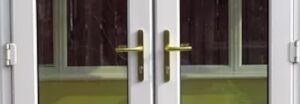Don't Buy Into These "Trends" About Door Knobs Repair
페이지 정보

본문

The Comprehensive Guide to Door Knob Repair: Keeping Your Home Secure and Functional
Door knobs, typically taken for given, are essential elements of home availability, security, and personal privacy. When they malfunction, it can lead to aggravation and inconvenience, in addition to potential security threats. This useful post checks out the common issues that can take place with door knobs, guidelines on how to repair them, and the tools you might need for the task.
Comprehending Door Knob Functionality
Before delving into repair procedures, it is beneficial to understand how a door knob runs. A standard door knob includes a number of parts:

- Knob or Handle: The part you grip to unlock.
- Latch: A mechanism that protects the door when closed.
- Spindle: A rod that links both knobs and allows them to turn.
- Strike Plate: The metal plate on the door frame where the latch rests when the door is closed.
Comprehending these parts assists in identifying common issues that might arise.
Common Door Knob Issues
Door knobs can encounter a range of problems. Here are some common issues property owners may face:
- Stuck or Jammed Door Knob: Difficulty turning the knob or it stays in a set position.
- Loose Knob: The knob feels unsteady or detached.
- Secret Won't Turn: In the case of keyed knobs, the key might end up being stuck or refuse to turn, preventing access.
- Lock Issues: The latch might fail to pull back or extend, making it difficult to close or protect the door.
- Rust or Corrosion: Metal parts may corrode, particularly in areas with high humidity.
Tools and Materials Required for Repair
Before beginning any repair process, it's important to have the right tools on hand. Here's a list of frequently required tools and materials:
- Screwdriver (flathead and Phillips)
- Wrench
- Lubricant (like WD-40 or silicone spray)
- Replacement parts (knob, latch, spindle, and so on)
- Cleaning fabric
- Shatterproof glass
Step-by-Step Repair Process
1. Diagnosing the Problem
Begin by taking a look at the door knob to recognize the specific concern. Is the knob loose? Is it stuck? Or is it giving you problem when using the key? Assessing the problem will notify the necessary actions you need to take.
2. Remove the Door Knob
For many issues, you will require to remove the door knob:
- Find the screws that hold the knob in location. They are generally found on the side of the knob or on the plate.
- Use the appropriate screwdriver to get rid of the screws.
- As soon as unscrewed, pull the knob apart gently, exposing the connecting elements.
3. Examine for Damage
After getting rid of the knob, inspect all components for wear and tear. Try to find:
- Loose or worn screws
- A damaged spindle
- A faulty lock mechanism
If any piece is harmed beyond repair, it may require replacing.
4. Repair the Components
Depending on your diagnosis, take the following actions:
- For a Stuck Knob: Clean the knob and latch mechanism with a fabric to get rid of any debris. Apply a lubricant to the moving parts.
- For a Loose Knob: Tighten the screws that hold the knob in location. If they are stripped, consider changing the screws or using toothpicks to enhance the holes.
- For Key Issues: Lubricate the keyhole, and carefully wiggle the secret to free it up. If the secret is harmed, a duplicate might be necessary or you might need to change the whole lock mechanism.
5. Reassemble the Knob
After finishing the essential repairs, reassemble the knob:
- Align the knobs or handles together.
- Protect them with screws, ensuring they are tightened up properly.
- Place the latch mechanism back into the door, if removed.
6. Test the Door Knob
After assembly, test the Door Handle technicians (47.106.201.35) knob to ensure it runs efficiently. Check that it locks and unlocks effectively, and ensure the lock extends and retracts totally.
Maintaining Your Door Knob
Preventative maintenance is key to extending the lifespan of your door knob. Here are some tips to think about:
- Regularly apply lubricant to moving parts.
- Clean knobs with mild soapy water to eliminate gunk.
- Inspect knobs occasionally for signs of wear.
Door knob repair may appear difficult, but it is a manageable task with the right tools and guidelines. By acquainting oneself with how door knobs work and understanding how to fix common issues, homeowners can conserve time and cash while guaranteeing their doors remain functional and safe and secure. When in doubt or in cases of complicated lock systems, consulting a professional is constantly advisable.
Frequently Asked Questions About Door Knob Repair
Q1: How typically should I oil my door knobs?
A: It is suggested to lube your door knobs at least one or two times a year to ensure they operate efficiently.
Q2: What should I do if my secret is stuck in the door lock?
A: Do not require the key! Instead, attempt carefully wiggling it while using some lube. If that doesn't work, it might be time to speak with a locksmith professional.
Q3: Can I repair a broken door knob without replacing it?
A: Many minor issues can be repaired with simple adjustments or replacements of small parts. Nevertheless, if there is substantial damage, replacing the knob might be essential.
Q4: When should I call a professional for door knob repair?
A: If you're not comfy with the repair process, or if the breakdown includes an intricate locking mechanism, it's best to call a locksmith or a professional handyman.
Utilizing this guide, homeowners can with confidence approach door knob repair, keeping a safe and practical entrance in their homes.
- 이전글7 Simple Tricks To Totally Rocking Your Double Bed With Slide 25.06.28
- 다음글You'll Never Guess This Tread Mill's Secrets 25.06.28
댓글목록
등록된 댓글이 없습니다.


